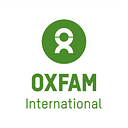Stories of courage and resilience from Grassroots Women Human Rights Defenders and Feminists in the face of the COVID-19 Pandemic
This is a production of the Coalition for Grassroots Human Rights defenders Kenya (CGHRDs Kenya). This publication was supported and funded by the Rosa Luxemburg Foundation, Dar-es-Salaam, Tanzania.
Financial literacy as a survival tactic for the COVID-19 Pandemic; Susan Owiti, a member of Kenya Peasants League (KPL)
My name is Susan Owiti, a member of Kenya Peasants League (KPL).
Kenya Peasants League is a social movement. Our aim is to encourage small farmers to go back to the indigenous ways of farming. We have so many collectives but I am more on the women’s and human rights collective. It was formed in 2016 and the women collective became active in 2018. KPL is a member of La via campensina. We grow our own food and the surplus we find ways of utilizing through other people. With the new land that we purchased, we are trying to develop some plants to try new seedlings especially the ones from Poland.
I had just given birth when the first case of 2. Financial literacy as a survival tactic for the COVID-19 Pandemic My name is Susan Owiti, a member of Kenya Peasants League (KPL) Women Resillence and Power through the COVID-19 Storm | Stories of Courage & Resilience 11 Cont’d on page 12 12 Women Resilience and Power through the COVID-19 Storm | Stories of Courage & Resilience COVID-19 pandemic struck in Kenya. My son was only two months old. Being an activist, I noticed that the biggest challenge girls were facing at that particular time in my area was lack of sanitary pads. I was still weak and delicate after giving birth and I could not move outside the house but at the back of my mind I knew I had to definitely do something. I quickly resorted to mobilizing my own resources and also through friends we managed to raise sanitary pads for girls. With only my phone, I pulled together some girls together knowing that if this is not done then something not pleasing might happen to the ladies. Oftentimes, they will resort to sex work just to get money to purchase pads and the result is usually unwanted pregnancies, diseases and dropping out of school. Girls are most vulnerable when they lack basic needs like sanitary pads. I solely called the girls in my house and distributed the pads to them as I talked to them about the current situations and telling them how to handle themselves with dignity and respect.
As an organization, we responded to the pandemic where we got a small grant that enabled us to purchase food for our members back in Nairobi. Life became too hard and since we have our farmers in the rural areas, we bought food from them and sent it to Nairobi County not only to our members but also for the larger community. We did not discriminate; we gave food to even non KPL members.
On women groups, it was very difficult raising funds because of the pandemic. There were women who could not support themselves and they had pre-existing loans hence they could not get other loans. We supported them with small amounts of money to enable them start a business or something to sustain them.
Access to resources was the biggest challenge I faced during the pandemic. As a business lady, accessing clothes to sell as mitumba (secondhand clothes) was a problem and the little you got was very costly. I strained so much even to support my little one. Even now, girls and women still come for sanitary pads in my house and I really struggle to make them available for them because I know they cannot get them from anywhere else. In the process of issuing pads, I also advise them and this has made them to really trust me. What I have gained during this pandemic is trust from parents of teenagers. This is mainly because I deal with women and also teenagers and I know how to handle them appropriately. Whenever a parent has a sensitive issue to discuss with their daughters they will always come to me to help them talk to them.
There is also the fatigue that comes with the work we do because you give too much and expect little in return. As an activist, people think you always have every answer to their problem not remembering that you could be having your own burden as well. People judge activists very harshly sometimes. I could be doing something right but not everyone will see it that way. This diminishes my morale at times.
I encourage women to adjust to living with the pandemic and advise them to look for alternative sources of income. A great lesson that COVID-19 has taught me is to be self-independent in that I don’t have to depend on anyone for finances. In the findings of our research, we found out that women took loans even without knowing the interest rates. More training needs to be given on financial literacy. This knowledge is what is going to liberate women to be financially independent.
